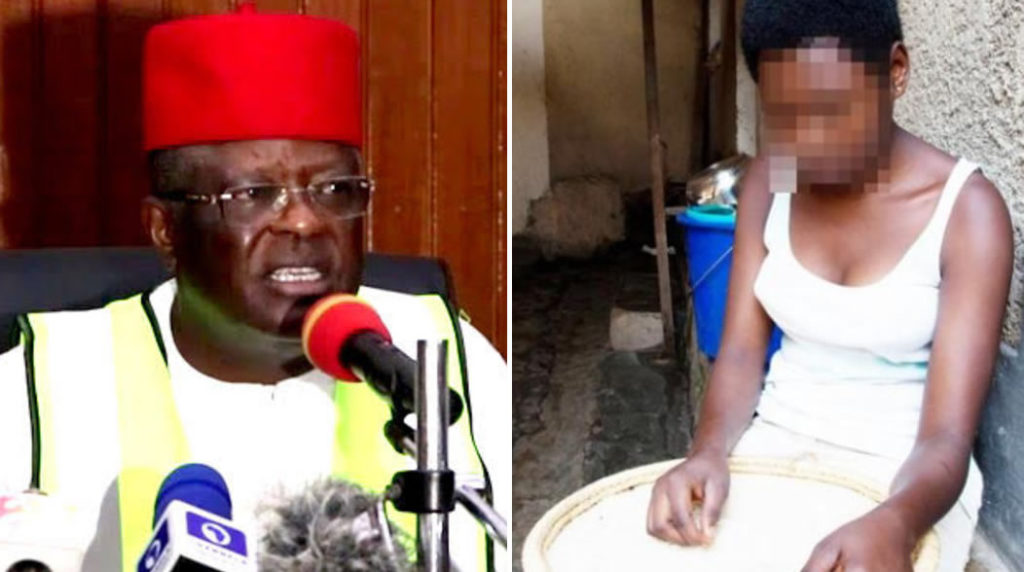Gov. David Umahi of Ebonyi has said that the era of picking up house helps from Abakaliki and other parts of the state was over with the state government declaring war on the inhuman act.
Umahi made the declaration on Friday in Abakaliki while inaugurating the state taskforce on human trafficking, courtesy the National Agency for the Prohibition of Trafficking in Persons and the International Organisation for Migration.
Umahi, represented by the Deputy Governor, Dr Kelechi Igwe, said that the war against human trafficking was not physical but against “forces of darkness of those known and unknown’’
“The era of coming to Abakaliki and indeed, Ebonyi to pick up househelps is over and we are saying it with all dexterity in us.
“The present administration has stopped all sorts of inhuman treatment on our people and if anybody must come to take someone for any reason, the person must disclose fully what the person is going to do for him or her.
“This does not mean that people should not assist others but we are careful not to give out our people for inhuman activities in the name of househelp again,” he said.
The governor said that unscrupulous househelp racketeers have negated the true essence of offering assistance to others and converted such helps to inhuman treatment and personal gains.
“We take our minds to our primitive era when one of the sources of livelihood for some rural families was giving out innocent sons and daughters to serve as househelps.
“The kind gestures ordinarily should have been humanitarian services but were, however, negatively channelled with some of these innocent children converted to sex toys and objects of trade among others,” he said.
He noted that since assuming office in 2015, the state government fought such ugly trend by empowering the state’s citizens found on the streets of such as Aba, Lagos and Onitsha among others.
“Those in Lagos were given N140 million to engage in trade and others meaningful activities, while those in Onitsha received over 400 tricycles among such gestures to citizens in other major cities.
“The state government will continue to support NAPTIP and other sister agencies while providing the enabling environment for the taskforce to succeed in its duties,” he said.
The Director-General of NAPTIP, Mrs Julie Okah-Donli, said that human trafficking represented a clear danger to human and national security as governments at all levels must show enough political will to stem the tide.
“The state taskforces on human trafficking should ensure adequate sensitisation to the grassroots and among the vulnerable groups, while providing services and support to rescue and return victims.
“This requires strong political will and budgetary provisions on the part of state government in addition to the commitment of the traditional institutions, religious and community leaders,” she said.
She disclosed that 292 Ebonyi indigenes were rescued by NAPTIP from 2004 to July 2020, consisting of 205 females and 87 males.
The International Organisation for Migration gave a goodwill message at the occasion as the taskforce consists of representatives of the state government, civil society organisations and security agencies among others.
